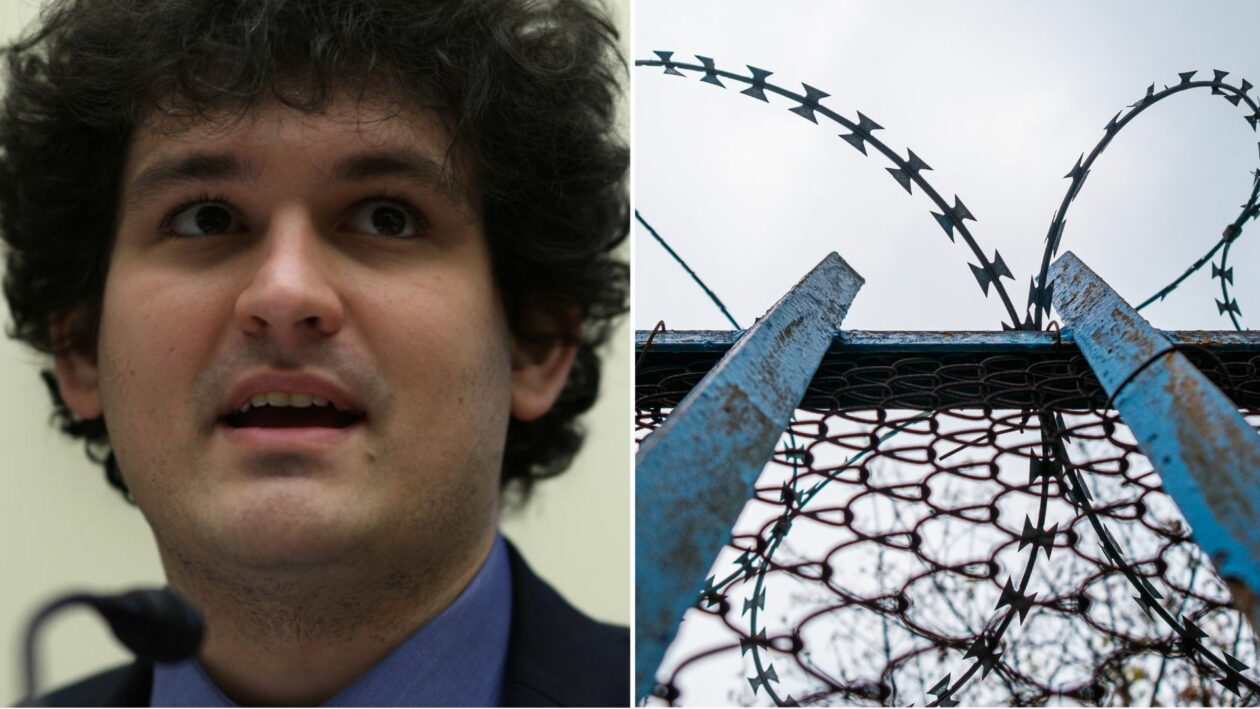Sam Bankman-Fried, founder and former chief executive officer of failed cryptocurrency exchange FTX, could face more than 20 years in prison depending on the scale of potential legal violations related to the collapse of FTX and if he is convicted, two lawyers told Forkast.
Multiple U.S. state agencies, including the Securities and Exchange Commission (SEC), the Commodity Futures Trading Commission (CFTC) and the Department of Justice (DOJ), are probing Bankman-Fried and his Bahamas-based company following FTX’s abrupt implosion this month.
“With respect to the criminal sanctions, depending on the number of violations and the dollar value of violations, under the federal sentencing guidelines, you could be looking at potential criminal liability that could exceed 20 years of incarceration,” Richard Levin, chair of fintech and regulation practice of law firm Nelson Mullins Riley & Scarborough, told Forkast in an interview.
Braden Perry, former senior trial attorney at CFTC and partner at law firm Kennyhertz Perry, told Forkast that Bankman-Fried could even face “life in federal prison without the possibility of supervised release.”
Levin and Perry offered professional opinions on the unfolding events at FTX and neither is directly involved in any current potential legal action against FTX executives. Both are based in the U.S.
At time of publication, Bankman-Fried had not responded to Forkast’s request for comment via Twitter.
An official at Eversheds Sutherland said the law firm could not comment on FTX as it may play a role in the bankruptcy proceedings. A spokesperson at law firm Kobre & Kim said it could not comment as it may be involved in the case, and a lawyer at King & Wood Mallesons also said they could not comment. The individuals declined to be named.
Racking up points
Perry said that under the federal sentencing guidelines, any loss above US$550 million adds 30 points to the base level, having 25 or more victims adds six points, use of certain regulated markets adds four, sophisticated means adds two, and a jurisdictional element would add another two.
“If strictly enforced, and assuming minimal mitigating factors, he [Bankman-Fried] is sitting above 43 [points], which is the maximum under the guidelines,” Perry added.
Perry said that what’s more concerning for Bankman-Fried would be the potential regulatory and criminal actions.
Regulatory actions could include requesting restitution, disgorgement and imposing market bans, meaning Bankman-Fried could not actively participate in certain market activities, Perry said.
The alleged wrongdoings of FTX could lead to various charges against Bankman-Fried and other executives, the lawyers added.
Levin said that state prosecutors are likely to bring in charges related to violations of the securities laws that are criminal, such as securities fraud. “There could also be prosecution related to wire fraud and money laundering.”
“Then you have the criminal sanctions that could be brought or the enforcement actions that could be brought by the SEC and the CFTC,” Levin added.
Section 10
Anthony Sabino, a professor at St. John’s University School of Law in New York, told Forkast that John J. Ray III, the new CEO of FTX, has raised issues of misstatements, deception, missing assets and wrongful transfers in the company’s recent filings with the Delaware bankruptcy court.
“Bankman-Fried might very well be charged with violation of U.S. securities laws, especially the infamous Section 10, American law’s most powerful weapon against securities fraud, the one used to put insider traders behind bars,” Sabino said.
If allegations of violations of U.S. securities laws are made, they would most likely center on accusations of misleading investors, filing or disseminating false financial information, according to Sabino. If criminal charges are brought, they almost certainly will include mail and wire fraud, he said.
“If convicted, all these laws carry lengthy prison sentences, massive fines, and, notably, disgorgement of unlawful profits,” Sabino said.
“In sum, SBF could be reduced to poverty – which might be poetic justice, given that the same fate has apparently befallen some of his investors,” Sabino added.
Mouth wide shut
Despite investigations from U.S. and Bahamian authorities, Bankman-Fried has not shied away from making public statements.
He spoke to Vox several days after news broke about FTX’s collapse, and is expected to speak virtually at the New York Times DealBook Summit on Nov. 30.
Bankman-Fried, whose parents are both law professors at Standford University, has parted ways with lawyers at law firm Paul Weiss who represented him, as he was disrupting reorganization efforts through “incessant and disruptive tweeting,” Bloomberg reported last week.
Semafor, a U.S. news site that launched in October with investment from Bankman-Fried, reported last week that the former FTX CEO is now represented by Greg Joseph, a former president of the American College of Trial Lawyers. David W. Mills, a Standford Law School professor, is also on his legal team.
“I don’t represent Mr. Bankman-fried,” Levin of Nelson Mullins said. “However, if I did, I would be telling him not to be making statements related to the failure of FTX and his role at FTX.”
Levin added: “Every time that executives at FTX are making public comments, they’re creating evidence that could be used against them in any number of ways, whether criminal or civil lawsuits.”
Perry agreed that Bankman-Fried should stop the public statements. “The more he speaks, the more potential admissions he has given prosecutors.”
“No matter how much he may want to justify certain things, it’s detrimental to his potential legal defenses,” Perry said.
Bankman-Fried “needs to keep his mouth shut, and let his attorneys speak for him,” Sabino said.
“He is taking an enormous risk, with virtually no hope of profiting from these public utterances.”

